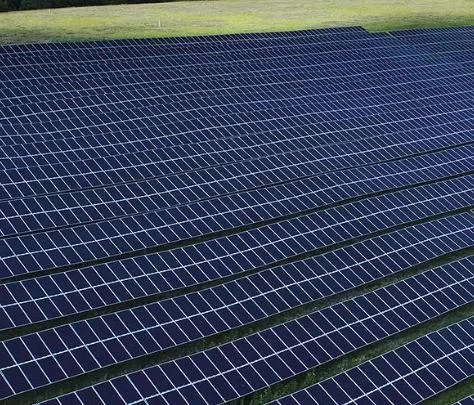Energy Boondoggle
Energy Boondoggle
Hey, haven’t you already written about this?
The answer is yes, in May 2023. At the same time I wanted to shout, HAVE YOU LEARNED NOTHING! But know I would only be screaming into the void at this point.
When new and beginning farmers come to me for advice, I tell them that the most critical thing they can do is become involved in their local government. At the very least, read the agendas or view the minutes online if there’s access. Sadly, much of this information is being systematically removed from easy public access. Gone are the days when public meetings were held on Zoom and anyone could tune in to find out what was going on in their communities, most of it the boring day-to-day workings of a functioning government. Many of us weren’t paying attention in high school civics to realize as adults, as residents, as landowners, businesses, educational institutions, and religious organizations all have a say in what happens in our communities. That’s why we elect leaders who share our commitment to farmland, conservation, clean water….
…Oh, wait a minute. That isn’t happening. Even worse, your own elected officials have put forth Senate Bill 931/House Bill 1036 in the Maryland legislature which would allow large-scale energy projects to supersede local zoning rules, not pay property taxes and devour farmland throughout the state and particularly on the Eastern Shore.
Yes, that’s what local citizens who have spent their tax dollars and time protecting their municipalities against entities that do not align with community values want. Zoning laws and enforcement takes a lot of time, money, and work. I mean surely an international conglomerate or investment group know more about sensitive riparian or flood plain drainage than three generations of knowledge in local governance and public works.
Big Energy loves to tell us how many jobs and workers large-scale projects will bring. Anyone who has ever lived through such an influx either doesn’t stick around to see how it ends or feels like a swarm of locust have laid everything bare before leaving in a wake of environmental and economic devastation once it’s passed. It’s the energy industry’s Boom & Bust cycle.
Oil, gas, coal, wind, solar,—none of that really matters as much as the reality that our lives are increasingly depending on energy and we’re willing to trade our food system for technology. Something needs to power all our gadgets.
It’s been less than two years since I addressed this issue in Dishing the Dirt. Since then over 1500 acres between me and the Maryland border have been gobbled up by solar panels—all of it premium farmland that was once producing food in one way or another. Gone are the wheat fields, dairy farms, rows of corn and soybeans. And it’s spreading. I’ve seen solar going up in very rural areas, up by Spiral Path Farms and down by The Farmstead Butcher.
And the economic boom? Sure, for a while, but now that all the out-of-staters have left the construction sites, our rural roads are much safer again and the incidents of crime have decreased. You see, there are very specialized contractors who install large solar arrays. They don’t hire the locals. Like the oil and gas industry, there are only a few players when it comes to an infrastructure build-out. They’ll be the ones who make affordable rural housing difficult due to the high demand, driving out people who lived and worked in the community for years prior to solar’s arrival. Ask those in Allegany, Garrett, and Washington counties who experienced the Marcellus Shale boom what happened to their communities.
For as much as the price of eggs has been in the news, you’d think folks would want to keep the Eastern Shore of Maryland in agriculture. But we’re in the age of extraction politics and farmers, conservationists, and you, dear readers, will all be on the losing end of that stick unless you make your voices loudly heard. We have got to quit tearing up our farmland that produces food for industrial energy installations and high voltage power lines. There are alternatives, only they don’t deliver near the profits compared to rural farmland leases.
Please contact your legislators prior to the hearings for both the House and Senate bills scheduled for Feb. 28 at 1:30p.m.
To learn more, visit: www.farmersallianceruralmaryland.org

